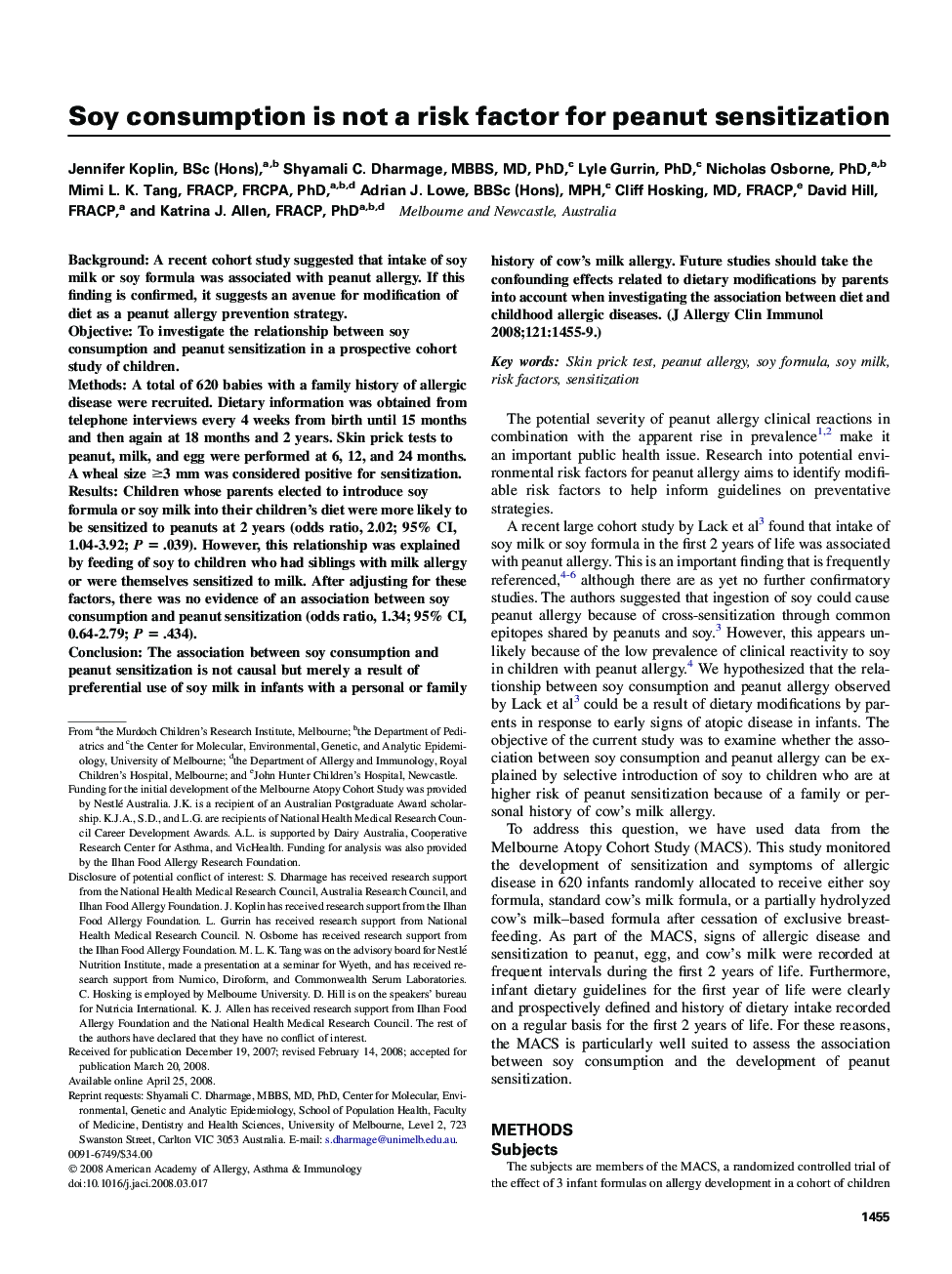| Article ID | Journal | Published Year | Pages | File Type |
|---|---|---|---|---|
| 3202840 | Journal of Allergy and Clinical Immunology | 2008 | 5 Pages |
BackgroundA recent cohort study suggested that intake of soy milk or soy formula was associated with peanut allergy. If this finding is confirmed, it suggests an avenue for modification of diet as a peanut allergy prevention strategy.ObjectiveTo investigate the relationship between soy consumption and peanut sensitization in a prospective cohort study of children.MethodsA total of 620 babies with a family history of allergic disease were recruited. Dietary information was obtained from telephone interviews every 4 weeks from birth until 15 months and then again at 18 months and 2 years. Skin prick tests to peanut, milk, and egg were performed at 6, 12, and 24 months. A wheal size ≥3 mm was considered positive for sensitization.ResultsChildren whose parents elected to introduce soy formula or soy milk into their children's diet were more likely to be sensitized to peanuts at 2 years (odds ratio, 2.02; 95% CI, 1.04-3.92; P = .039). However, this relationship was explained by feeding of soy to children who had siblings with milk allergy or were themselves sensitized to milk. After adjusting for these factors, there was no evidence of an association between soy consumption and peanut sensitization (odds ratio, 1.34; 95% CI, 0.64-2.79; P = .434).ConclusionThe association between soy consumption and peanut sensitization is not causal but merely a result of preferential use of soy milk in infants with a personal or family history of cow's milk allergy. Future studies should take the confounding effects related to dietary modifications by parents into account when investigating the association between diet and childhood allergic diseases.
